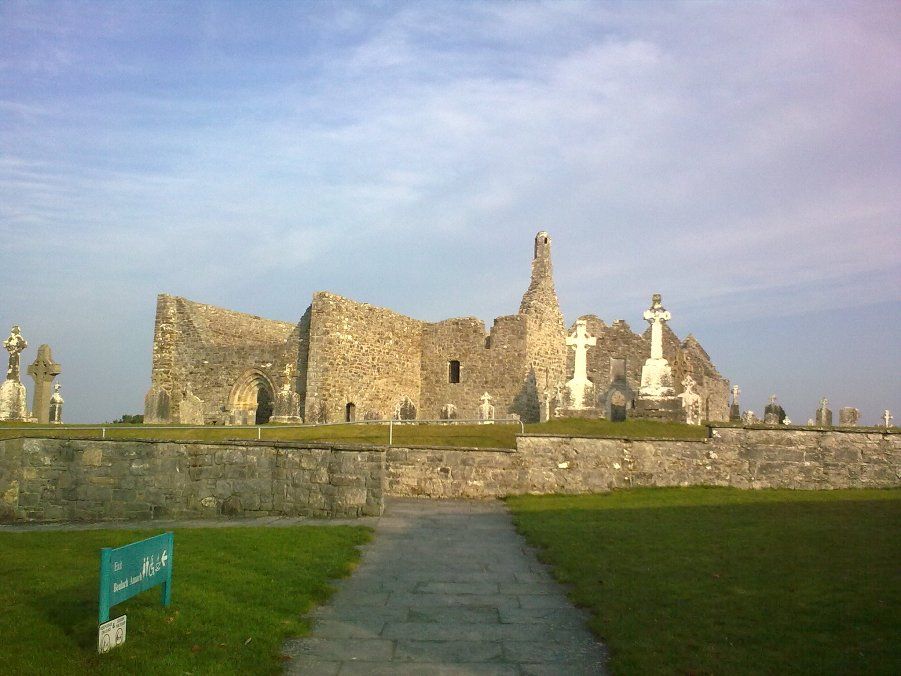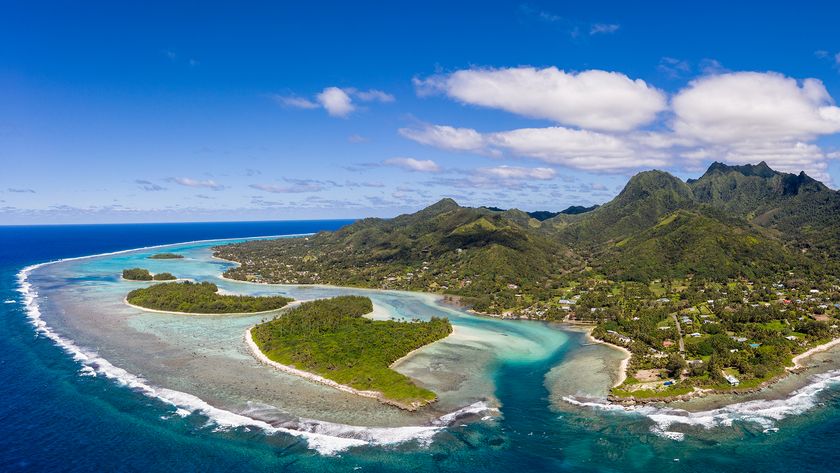Irish Cold Spells Linked to Volcanic Eruptions, Via Old Writings

Major volcanic eruptions around the world have coincided with periods of unusually cold weather in Ireland for a span of more than 1,200 years, new research shows. The findings suggest eruptions could have complex effects on regional climates, possibly leading to cooling in areas of the Northern Hemisphere even in wintertime, which hadn't been clearly shown before.
The study, published today in the journal Environmental Research Letters, reconstructed the history of cold events in Ireland from the fifth through 17th centuries A.D., based on more than 40,000 writings of scribes and monks from that time. The history of volcanic eruptions was also recreated based on levels of sulfate found in Greenland ice cores — an accepted method to date past eruptions, said study author and Harvard researcher Francis Ludlow. By comparing the two sources, Ludlow and his colleagues found cold events were more likely to occur in the years after these eruptions: More than half of the 69 coldest periods happened in the years following huge volcanic eruptions, Ludlow said.
"This suggests that a very major volcanic eruption can have a long-lasting impact on climate, with extreme cold occurring for possibly several years after an event," Ludlow told LiveScience.
Cooling eruptions
Scientists agree that on a global scale, large volcanic eruptions can cool the Earth. This happens because volcanoes spew out particles of sulfate, which can reach the stratosphere (the layer of the atmosphere above the troposphere, the segment of air we breathe and that is closest to the ground). Once in the stratosphere, the sulfate particles reflect incoming solar radiation and cool the globe. [Image Gallery: Wild Volcanoes]
The impact of volcanoes on climate is most obvious in the summer. In winter, it gets more complicated: In some areas of the Northern Hemisphere, large volcanic eruptions have been associated with slightly warmer winters. This may be because sulfates can absorb heat leaving the Earth's surface, and reflect it back at the ground, Ludlow said.
However, the new study found that many of these cold events happened in the winter. "This suggests that on a regional scale the response of the climate in winter may be more complex, and that an initial warming effect could potentially change to a significant cooling for some regions in the years following major tropical eruptions," Ludlow said (although the study looked at all major eruptions, not just tropical ones). "We need to learn more about how the climate of particular regions responds to major volcanic eruptions."
Sign up for the Live Science daily newsletter now
Get the world’s most fascinating discoveries delivered straight to your inbox.
Detailed records
The records kept by medieval Irish scribes were incredibly detailed, and they were in agreement about many of these periods of cold weather. For example, the records described periods of frost and snowfall that were unusual for Ireland, said Andrei Kurbatov, a scientist at the Climate Change Institute at the University of Maine who wasn't involved in the research.
The records are so meticulous, and some of them are reliable enough that they will help tweak climate models, Kurbatov said. "Who would have thought?" he asked.
One reason why certain monks took such detailed notes was that they thought extreme weather could signal the coming of the apocalypse. Here is one example shared by Ludlow, taken from the Annals of the Four Masters, written in 772: "... Terrific and horrible signs appeared at the time, which were like unto the signs of the day of judgment, namely, great thunder and lightning, so that it was insufferable to all to hear the one and see the other."
One of the big historic eruptions that corresponds to severe cold in Ireland is the 1104 eruption of the Icelandic volcano Hekla, known from its large deposits of sulfate in Greenland ice. One writing from the same year, in the Annals of Inisfallen, reported, "Heavy snow this year, and a greatloss of cows, sheep and pigs in the same year." Then, in 1107, a record in the Annals of Ulster recorded that "Snow fell for a day and a night on the Wednesday before the feast of St. Patrick, and inflicted slaughter on beasts in Ireland."
The effects of Hekla on the regional climate are particularly interesting because "Hekla is still very much an active volcano — one of the most active in Iceland, in fact — and probably has more trouble in store for us in the future," Ludlow said.
Email Douglas Main or follow him on Twitter or Google+. Follow us @OAPlanet, Facebook or Google+. Original article on LiveScience'sOurAmazingPlanet.












